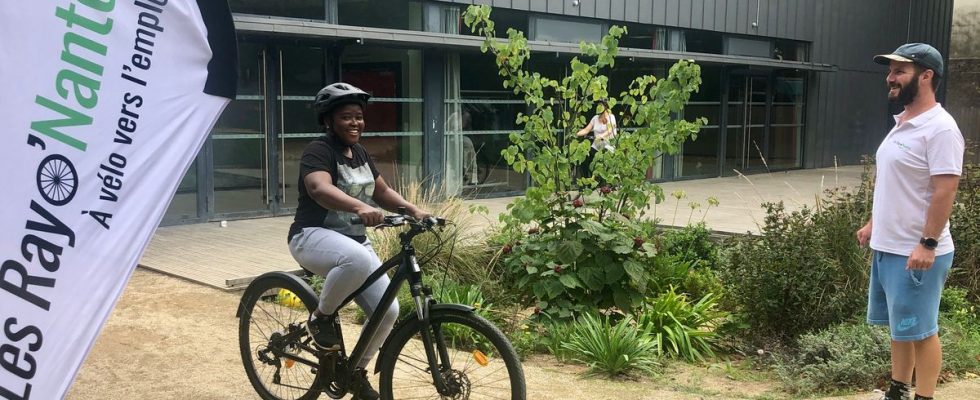Even when she brushes the wall a little too closely, Karima loses neither her smile nor her motivation. It must be said that this mother from Nantes, with a black helmet pressed on her head, had been waiting for this moment for a long time. “I’ve wanted to learn to ride a bike for four years,” confides this care worker, resident of the Bourderies district. But my children never have time for me, they tell me it’s easy. Whereas I, in the middle of traffic, am afraid, I don’t have confidence. However, to go to work, it would still be simpler and cheaper than the car…”
Since mid-September, Karima and eight other women aged 20 to 57 have (re) gotten into the saddle thanks to a new integration program called The Rayo’nantes. At the island’s neighborhood center, for ten weeks, these apprentice cyclists meet on Tuesdays and Thursdays to learn, free of charge, how to ride a bicycle and be independent in the city. “Some know how to pedal a little, others not at all,” explains Thomas Sauvaget, development manager at the Team Elles association, which initiated the project. The objective is to help them feel comfortable, in order to remove the obstacle that mobility and transport represent when it comes to employment. It is also a way for these women in precarious situations to gain self-confidence and feel better socially integrated. Like a little seed that we plant. »
“I thought cycling wasn’t for me”
Because the Rayo’nantes program is not just a few hours of cycling lessons. The Teams Elles association has surrounded itself with different players to offer Highway Code sessions, mechanical workshops, but also support in the French language or help with writing CVs. During the All Saints’ Day holidays, beneficiaries will be able to come accompanied by their children. Mariam, who agreed to ride her saddle a little for her third lesson, is looking forward to it. “My 12-year-old will be able to learn too, it will be great to go on outings together,” this 30-year-old cleaning worker is already planning. Before I came here, I thought I was too old to ride a bike, that it wasn’t for me. But even though I didn’t go to school, I want to be like everyone else…”
While only 35% of everyday cyclists are women, Rayo’nantes see cycling as both a means of developing “mobility” for participants and a source of “emancipation” for them. “Many never had the right or access to it when they were younger, while others stopped after their first child,” observes Thomas Sauvaget. There is also a lack of awareness of the assistance available for purchasing a bicycle. »
At the end of this internship, at the end of November, a visit to a cycling company is planned. History, perhaps, of “creating a few vocations” while there is “a strong need for labor”, in repair or animation, among companies in the sector. Ultimately, the association hopes to organize four support sessions per year, perhaps in different areas of the city.

